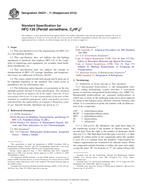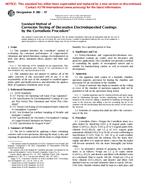1.1 This guide covers all types of healthcare services, including those given in acute care hospitals, nursing homes, skilled nursing facilities, home healthcare, and specialty care environments as well as ambulatory care. They apply both to short term contacts (for example, emergency rooms and emergency medical service units) and long term contacts (primary care physicians with long term patients). At this time, the standard vocabulary reflects more traditional care. As the standard evolves in the next revisions, the vocabulary will more adequately encompass the entire continuum of care through all delivery models, health status measurement, preventive case, and health education content.
1.2 This guide has five purposes. The first is to identify the content and logical structure of a Electronic Health Record (EHR). The record carries all health related information about a patient over time. It includes such things as observations or descriptions of the patient (for example, the physician’s or nurse practitioner’s history and physical, laboratory tests, diagnostic imaging reports), provider’s orders for observations and treatments, documentation about the actions carried out (for example, therapies or drugs administered), patient identifying information, legal permissions, and so on.
1.2.1 The second goal is to define the relationship of data coming from diverse source systems (for example, clinical laboratory information management systems, order entry systems, pharmacy information management systems, dictation systems), and the data stored in the Electronic Health Record. Recalling that the EHR is the primary repository for information from various sources, the structure of the EHR is receptive to the data that flow from other systems.
1.2.2 Third, in order to accelerate the adoption of EHRs, this guide provides a common vocabulary, perspective, and references for those developing, purchasing, and implementing EHR systems, but it does not deal either with implementation or procurement.
1.2.3 Fourth, this guide describes examples of a variety of views by which the logical data structure might be accessed/displayed in order to accomplish various functions.
1.2.4 Fifth, this guide relates the logical structure of the EHR to the essential documentation currently used in the healthcare delivery system within the United States in order to promote consistency and efficient data transfer. It maps to the clinical data currently in existing data systems and patient care records.
Product Details
- Published:
- 09/10/2002
- Number of Pages:
- 120
- File Size:
- 1 file , 570 KB
- Redline File Size:
- 2 files , 1.3 MB


